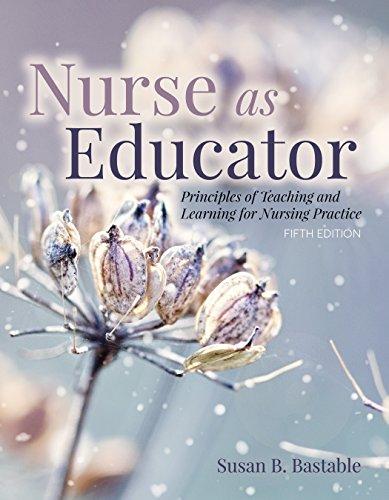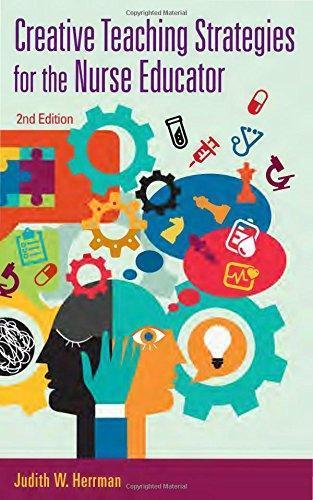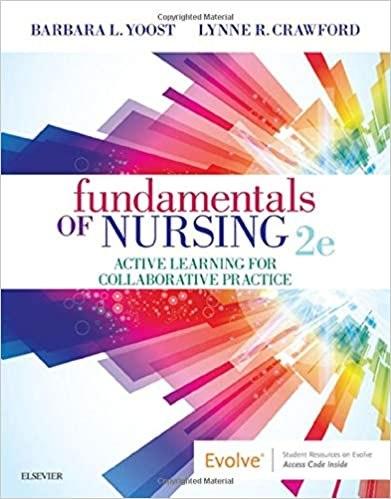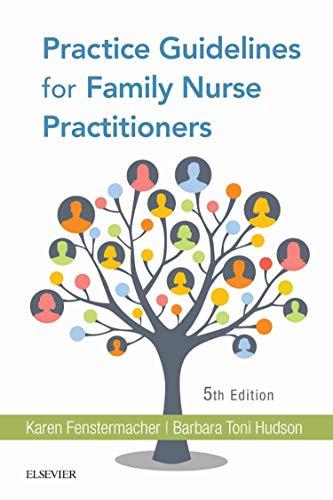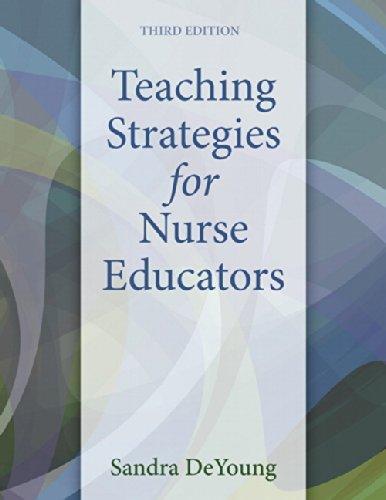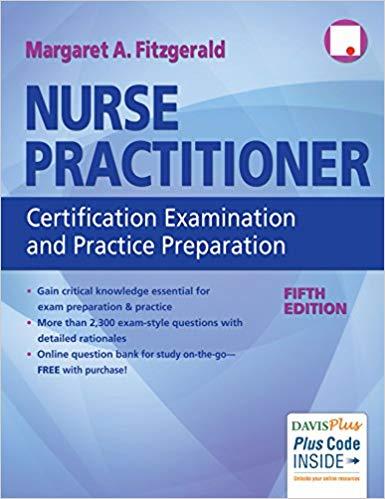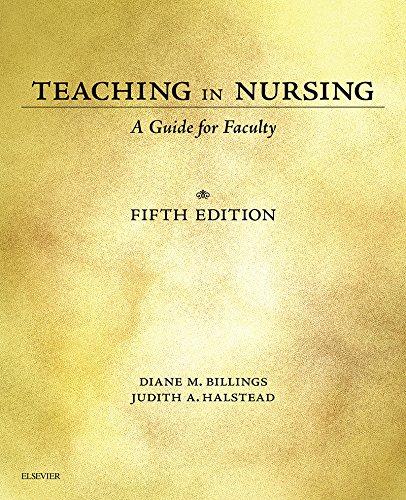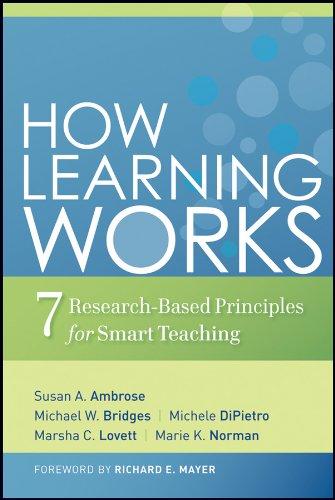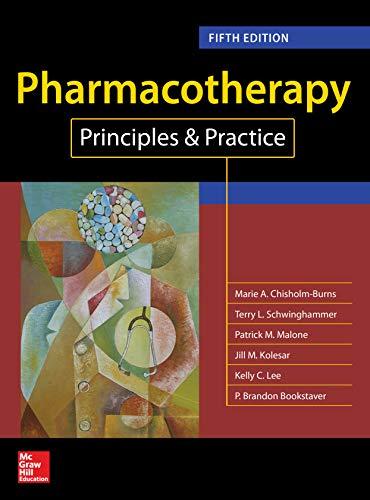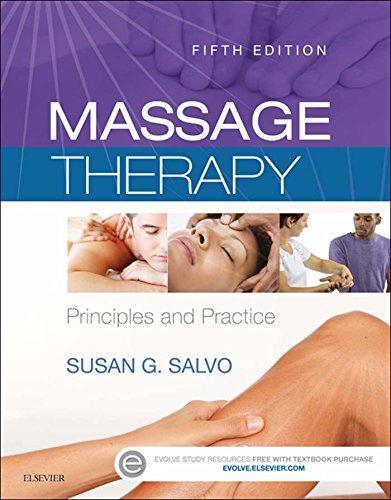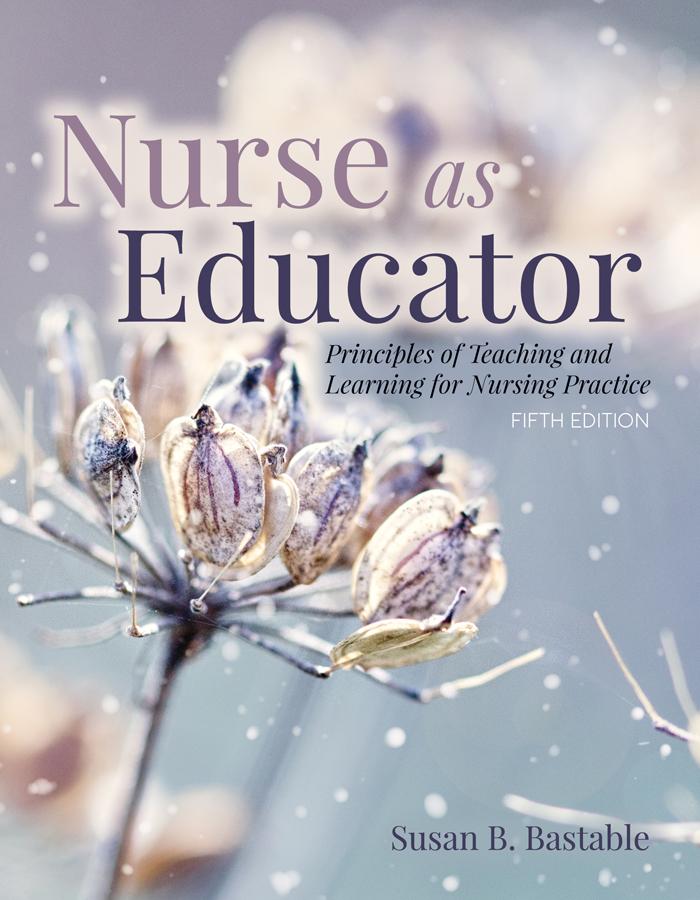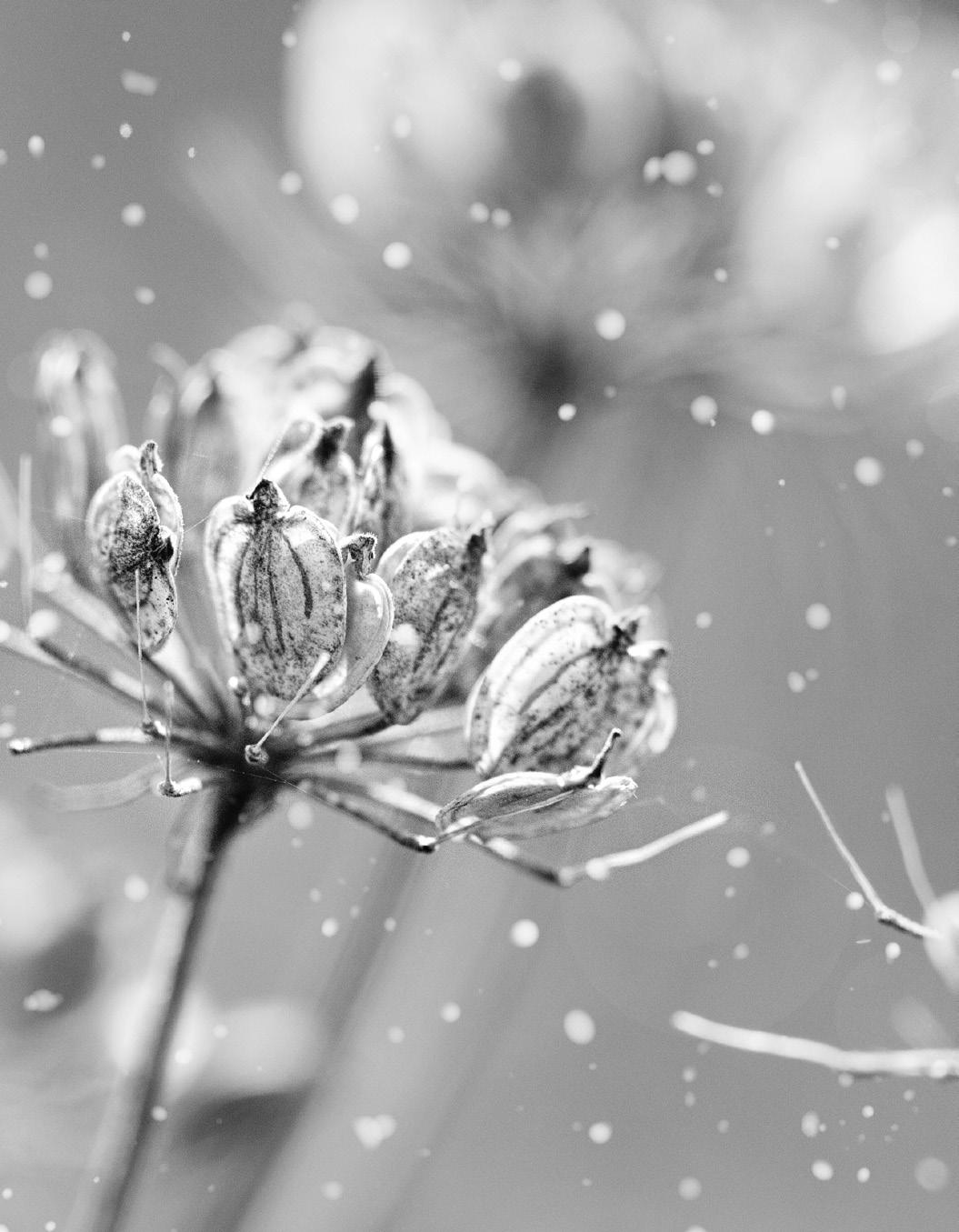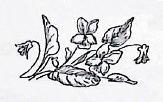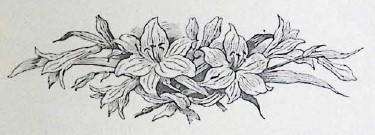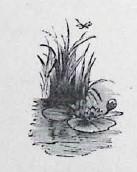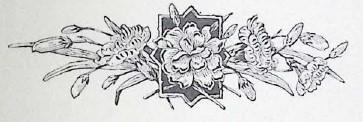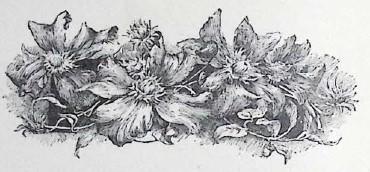About the Author
Susan Bacorn Bastable earned her MEd in community health nursing and her EdD in curriculum and instruction in nursing at Teachers College, Columbia University, in 1976 and 1979, respectively. She received her diploma in nursing from Hahnemann Hospital School of Nursing (now known as Drexel University of the Health Sciences) in Philadelphia in 1969 and her bachelor’s degree in nursing from Syracuse University in 1972.
Dr. Bastable was professor and founding chair of the Department of Nursing at Le Moyne College in Syracuse, New York for 11 years. She retired in May 2015 and was honored with the title of professor emerita. She began her academic career in 1979 as assistant professor at Hunter College, Bellevue School of Nursing in New York City, where she remained on the faculty for 2 years. From 1987 to 1989, she was assistant professor in the College of Nursing at the University of Rhode Island. In 1990, she joined the faculty of the College of Nursing at the State University of New York (SUNY) at Upstate Medical University in Syracuse, where she was associate professor and chair of the undergraduate program for 14 years. In 2004, she assumed her leadership position at Le Moyne College and successfully established an RN-BS completion program; an innovative 4-year undergraduate dual-degree partnership in nursing (DDPN) supported by a Robert Wood Johnson Foundation grant in conjunction with the associate’s degree program at St. Joseph’s College of Nursing in Syracuse; a BS-MS bridge program; a postbaccalaureate RN-MS certificate
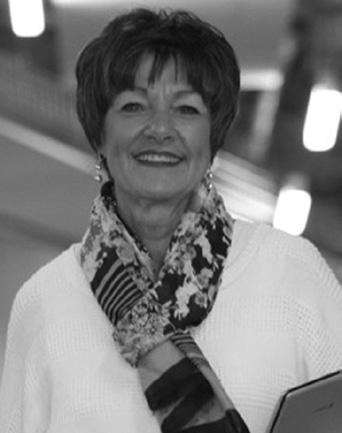
program; a master of science program and three post-MS certificate programs with tracks in nursing education, nursing administration, and informatics; and most recently a family nurse practitioner (FNP) program as well as a post-MS FNP option.
Dr. Bastable has taught undergraduate courses in nursing research, community health, and the role of the nurse as educator, and courses at the master’s and postmaster’s level in the academic faculty role, curriculum and program development, and educational assessment and evaluation. For 31 years she served as consultant and external faculty member for Excelsior College (formerly known as Regents College of the University of the State of New York). Her clinical practice includes experiences
in community health, oncology, rehabilitation and neurology, occupational health, and medical/surgical nursing.
Dr. Bastable received the President’s Award for Excellence in Teaching at Upstate Medical University and the SUNY Chancellor’s Award for Excellence in Teaching. Also, she was recognized for the Women in Leadership award from the Greater Syracuse Chamber of Commerce and was honored with the Distinguished Achievement Award in Nursing Education from Teacher’s College, Columbia University.
In addition to authoring five editions of Nurse as Educator, she is the author of Essentials of Patient Education and is the main editor of the textbook Health Professional as Educator. Currently, she actively serves in the role of a nursing education consultant for national and regional program accreditations and to assist colleges of nursing across New York and other states in replicating the unique 1+2+1 dual degree partnership model mentioned herein, the first of its kind in the country.
Another random document with no related content on Scribd:
And to be wroth with one we love Doth work like madness on the brain."
CHAPTER XVIII.
HEART TO HEART.
NEXT day, they moved me from the bed to a large old sofa near the window, and found that I was recovering fast. The hope of happiness renewed was a better tonic than any
that the doctor could give me; and, following Marian's good counsel, I resolutely put all minor worries out of my mind.
"The first thing to think of is health," she said, firmly. "When that comes back, perhaps you will find that Ronald's affairs are looking better than they have been for some time. But, of course, you can neither be well nor happy till you have had a perfect understanding with your husband."
"When shall I see him?" I asked.
"Will you be very good and composed if I bring him to you now, Louie? He naturally objects to being kept out of the room; but we dared not let him see you till your mind was quite clear and tranquil."
"Indeed," I said, earnestly, "I will put out all my powers of self-control—I will not even speak many words if I may but see his face for a minute. Oh, Marian, I am hungering for a sight of him!"
"And oh, Louie, how can I trust you when you show me such flushed cheeks and tearful eyes? But be quiet a little while, dear, and he shall come."
She went away, and I turned my hot face to the window, and tried to steady my nerves as well as I could.
It was an exquisite August morning, hazy and soft, with a sky of deepest blue, and a lovely purple mist clouding all the boundary lines of the distant fields. Below me lay the rectory garden, with its cool shadows and morning lights; the dew had but just dried on the leafy boughs of apple and pear trees, and from the herb beds came up the sweetness of mint and thyme, and the old-fashioned fragrance of lavender. I leaned back on my cushions and unconsciously
enjoyed all these fresh, delicate scents, while my heart throbbed faster at the slightest sound.
How long would it be before Ronald came? I felt convinced that waiting must be much worse for me than the excitement of our meeting. I could hear the sound of voices in the garden, but it was only the rector holding a consultation with his gardener. And then it occurred to me to wonder, for the first time, whether my host and my husband had yet met, and whether they liked each other? Perhaps Mr. Drury might be disposed to think less harshly of my marriage if he really knew Ronald. Perhaps this illness of mine, and this enforced stay at the old rectory, might be the means of reviving a dead friendship. I thought that it would; I could not believe that the rector's kind heart could be completely hardened against me.
How blue the sky looked between the twisted boughs of the tall pear tree! Marian and I had often sat under that tree when we were children, reading a fairy tale together; and kind Miss Drury would come to look for us, and fill our hands with cakes. Just as my thoughts were wandering back into my childhood, the sound of footsteps in the corridor recalled them, and set my heart beating afresh.
It was Ronald—really Ronald—who came quietly into the room and moved towards me with a grave face. I was not prepared to see him looking so worn and wasted, and at the sight of his altered countenance my feeble strength gave way. Speechless, I could only stretch out a thin hand, and welcome him with eyes full of tears.
Our meeting was a very quiet one. He knelt down beside the sofa, and folded me gently in his arms.
The silence, that lasted for some seconds, was only broken by the sweet rustle of the leaves outside the window. There was much to be said between us; but we were not, after all, in haste to begin the explanation which had been so eagerly desired by both. In truth, I believe that if that explanation had been altogether denied us, we should have taken each other "for better, for worse" again, quite contentedly, and walked side by side to our life's end.
"How could you have left me, Louie?" he murmured at last.
"Because I thought you did not want me any more," I answered, with my face pressed close to his.
It is needless to tell what he said in reply; but I was thoroughly convinced that he did want me. There was another silence; and when he spoke again, it was in the old easy tone of authority.
"Now tell me, Louie, what on earth is the mystery about that letter? How could Greystock have made you, believe that I dropped it in his office?"
I produced the letter, and my husband studied it attentively for a moment or two. Still holding it in his hand, he looked at me with a puzzled expression in his eyes.
"There is no doubt that Ida did really write this letter," he said, frankly. "One can't mistake her hand. I see that it is supposed to have been written on Thursday night, and, to tell you the truth, Louise, I can understand your indignation."
"Then, Ronald, you will promise never to see her again! She must have lost all sense of shame when she wrote such a thing to my husband."
"Wait a second, little woman. She never would have written such a thing to your husband—I am certain of that. But she might have written it to her lover in days gone by."
"You were her lover, Ronald, in days gone by."
"Yes; but I am sure I never received this letter. You say that Greystock gave it to you? Well, he used, sometimes, to act as our postman; can this be a note which was entrusted to him and never delivered to me?"
"If you think so, Ronald," I said, struck with this new idea, "you ought to ask him to explain the whole matter. I know now that he is your enemy and mine. Do not be afraid to let him see that you distrust him."
My husband waited for a moment before he spoke again. "Louie," he said at last, "you do not know that Greystock has gone beyond my reach. Don't be shocked, little woman; I must tell you an awful thing."
"Has he left the country?" I asked, eagerly.
"He has left the world! A few hours after you last saw him, he was found in his chambers quite dead. He died of heart disease, and his doctor proved that he had been suffering from it for a long time."
I shivered from head to foot; and Ronald, frightened at the effect of his words, began to soothe me by every means in his power. But although I clung to him, and realised to the full the happiness of having him with me, I could not help picturing that parting scene with William Greystock. He had gone out of my presence with all the savage misery of a disappointed man burning in his heart, and thus had hastened the death that had been ever near at hand.
It was no fault of mine that had hurried on his end, yet I must have been a far harder woman than I was, if I could have heard of that end unmoved. We were set free for ever from the baneful spell that he had exercised over our lives; and there came to me at that moment a prophetic conviction that all our doubts and misunderstandings would be buried with him.
"And now," said Ronald, still stroking my hair with his old fond touch, "let us talk of happier things, Louie. I have something else to tell you that will drive all sad thoughts away. Your good old friend, the rector, has taken me into his favour and—"
"Then he is going to help you! Oh, Ronald, he has influence, but he seldom cares to use it."
"He has already used it for our sakes. This morning he put a letter into my hand, offering me the post of secretary to a rich company. I will tell you all about the company later on; at present you certainly are not strong enough to be bothered with business details."
"I don't care in the least about details," said I, nestling up to him in an ecstasy of delight. "I know all that I want to know, Ronald."
"Not quite all, little woman. We must solve the mystery of that letter from Ida. But as it is a delicate matter, I think it will be well to entrust it to Marian; she has perfect tact, and Ida will be frank with her."
I was quite satisfied with this arrangement; and just then Marian herself entered the room.
"You two have talked long enough," she said, in that kindly domineering way, which she often had with me.
"Ronald must go downstairs to the rector, who is waiting for him in the study; and you, Louie, must be put to bed."
"Not yet," I pleaded. "Wait till it grows darker. It is so lovely to see the day dying behind the dear old trees."
But Marian was inexorable, and Ronald seconded her by rising and bidding me good-night. His parting words and kisses left me with a heart at peace, and I went quietly to rest.
In a few days, Marian had an answer from Miss Lorimer, which cleared up for ever the mystery of the letter.
Ida acknowledged that she had written the note in those bygone days when she and Ronald were lovers, tasting the sweetness of "stolen waters," and carrying on a clandestine intercourse, shrewdly suspected by the lady's guardian. At that time, William Greystock had been their confidential friend, and to his hands Ida committed the letter which was destined to work such terrible mischief at a later period.
She remembered that William had come to her with a grave face and a thousand apologies, confessing that he had lost the letter. At first she had felt uneasy about the loss; but as time passed on, and the romantic attachment on both sides began to cool, the circumstance faded out of her mind. She had never for a moment suspected William Greystock of anything like treachery, and the revelation of his base conduct to me came as a shock. Then followed kind messages to Mrs. Hepburne—regrets for the suffering that had arisen—hopes for my future happiness. And so the matter ended.
So, also, ended all intercourse between Miss Lorimer and ourselves. She never met us again; and I felt sure that
she avoided a meeting with infinite pains and care. Heartless as she was, I believe she had grace enough to be ashamed of the part she had played at the Richmond picnic. And although she never confessed the fact, I was certain that Greystock's subtle influence had made her act as she did that day.
CHAPTER XIX.
THE OLD ALBUM.
I CAME downstairs two days after my reconciliation with my husband, and was received affectionately by the good rector. Lady Waterville, too, was so moved by the account of
my illness that she actually exerted herself enough to write a kind note, saying that she had quite forgiven me and taken me back again into favour. The sudden death of William Greystock had shaken her nerves; life was short; and she wanted to be at peace with all those whom she had ever known and loved.
She added that, among her poor nephew's effects, there had been found an album which had been given by Inez Greystock to her sister, Estella Hepburne. The book was full of scraps of prose and verse, all in the handwriting of the ill-fated Inez, and the name of Estella was written on the fly-leaf, followed by an urgent injunction to her husband to place the volume in Mrs. Hepburne's hands if Inez were the first to die. The Colonel had, no doubt, instructed William Greystock to fulfil that earnest request; and William (for reasons of his own) had failed to obey him.
"We have so few relics of your aunt Inez that we shall value that album," I said to Ronald.
"Yes," he answered, thoughtfully. "But what a strange fellow Greystock was! What possible motive could he have had for keeping a book which was useless to him?"
"He was full of mysteries, Ronald; let us try to banish him from our thoughts entirely," I said, with an involuntary shudder. "As soon as we return to London, you shall call on Lady Waterville, and get the album. I long to see it I think it may tell us more of Aunt Inez than we have ever yet known."
September had set in, and the woods about my old country home were taking their first autumn tints, when I said good-bye to the rectory. Dear, peaceful house, in which Ronald and I had begun a new and better life together! I
felt that I should love those ivied walls to the very last day of my life, and thank God that I had found a shelter there in the hour of my sharp distress.
Marian had gone back to her aunt, in Curzon Street, and I travelled back to London alone. Memories came rushing in upon my heart as the train bore me back again to the home of my wedded life. New thoughts, new prayers, new resolutions, made the journey seem short to me. There was a clearer light shining now upon the path which the young wife had to tread—a path in which her feeble feet had often stumbled, and her hands groped blindly for some guiding touch. But experience had taught me where the dangerous places were to be found; and the mist of doubt and fear would obscure my way no more.
It did not trouble me to know that we should have to live as cheaply as possible for many a month to come. Ronald had declared himself heartily willing to economise, and save enough out of his salary to pay off all that we owed. My health, still delicate, would oblige me to lead the quietest of lives, and my husband repeatedly assured me that he desired nothing better than home-like peace and rest. We had promised each other to begin a fresh existence, making light of small crosses, and thinking the most of every joy that came to our lot.
Ronald had already entered into his new employment heart and soul; and as his presence was required at his office, it was nurse who came to meet me at the railwaystation.
It was between two and three in the afternoon when the train arrived at its destination, and I caught sight of a wellknown, comely face, and a portly figure on the platform. There was a suppressed rapture in nurse's greeting, which
diverted, while it almost unnerved me; the good soul's gratitude at seeing me restored to health and happiness was expressed in her own quaint fashion:
"Ah, how sweet you look, Miss Louie, ma'am! As pretty again as ever, and everything about you smells of the country! Why, that's a bunch of Glory-de-John roses from dear master's own old tree! And here's a basket of the rectory pears, that make my mouth water to behold 'em! Come, my dear, step into a cab, and don't speak a word till you have had a cup of tea and a good rest."
Obeying her kind command, I was silent as we rolled on through the sunshiny London streets; but when we drew near home, my heart began to throb fast with the bliss of the old love and the new peace.
Still in silence, I entered the little room from which I had fled in such wild haste and anguish. All the familiar objects seemed to give me a mute welcome; there were Ronald's tambourines with their bright streamers of ribbon; there were the bulrushes and the old china. On the table was my ancient silver teapot, covered by a satin cosy of my own making, and everything spoke of forethought and expectation. This was my true home; within these two rooms, my husband and I were destined, as I then believed, to spend many an hour together.
When nurse had sent one of the maids to boil a newlaid egg, and had taken off my bonnet with her own hands, she began to fuss over me, and wait upon me as if I had been her little charge of long ago. I had emptied one cup of tea, and was ready for another, before she remembered that she had a message to give me.
"Lady Waterville's man called with a parcel this morning, my dear," she said. "Her ladyship's love, and she wished to see you as soon as you were well enough to go to her."
"I shall very soon be well enough," I answered. "But where is the parcel, nurse?"
"Now drink your tea in peace like a good girl, ma'am," said nurse, authoritatively.
"I shan't drink it in peace if you don't let me see that parcel," I replied.
The parcel was brought, the string untied, and within the paper envelope lay an old-fashioned book, with wellpreserved covers of scarlet morocco, and gilt edges. It was just such a book as one sees in the drawing-rooms of ancient maiden ladies; and to me there has always been something touching in such volumes—shrines of memories and dead loves.
When nurse had gone to look after household matters, and I was left alone once more, I carried the book to the sofa and sat down with it upon my knees. Close beside me was the guitar, and a few rays of afternoon sunlight illumined its polished wood and delicate mosaic ornamentation. I toyed with it carelessly for a second or two, and then began to turn over the album leaves.
Evidently poor Inez Greystock had been a woman who loved poetry and flowers. Her water-colour drawings of lilies and roses and pansies were superior to much of the boarding school art which was in vogue in her day. As to the poems, they were chiefly extracts from Byron and Shelley; all melancholy—all harping more or less on one sad string— the utter loneliness of a disappointed heart.
But at last I came to one page, near the end of the book, which was gayer and brighter than any which had preceded it. A large card, with a gaily gilded pattern for a margin, was inscribed with three verses, far inferior in literary merit to the rest of the poetry in the volume; and these lines were set to music.
A simple air it was, apparently written out by a careful hand—every note being perfectly distinct; and at the top of the page there were these words—
"Hope: a Song for my Guitar."
What remembrance was it that thrilled me with a sudden shock as my glance rested on the first words of the little poem? I read it from beginning to end, and the lines, commonplace as they will seem to strangers, must always remain imprinted on my memory.
"Hope guards the jewels, peerless gems and bright, To crown beloved brows with living light; When other guardians fail, and joy flies fast, Hope leads thee to the treasure-house at last.
"Hope guards the jewels; love may prove untrue, But faithful Hope creates thy life anew; To her, the fairest grace of all the three, I leave my precious things to keep for thee.
"Hope guards the jewels; there will come a day, When she, who loves thee, shall be far away; But Hope will hover near on angel wings, And guide thee by the tuneful song she sings."
As one in a dream, I put down the album and took up the guitar. Already the September sunshine was beginning to wane, and I carried it close to the window (just as my husband had done when it first came into the house) and examined the piece of paper pasted inside the instrument.
"Hope guards the jewels." The handwriting here was the same as that in the book. And as the truth flashed upon my mind, a feeling something like awe overwhelmed me for a moment, and made me tremble from head to foot.
It was verily the lost guitar of poor Inez which I was holding in my hands. Through changing scenes, through divers owners, through unknown chances and dangers, it had come back to her rightful heir at last. I remembered that a good man had guided me to the attic where it was to be found, and that a dying man had delivered it to me with a blessing.
And now, with the finding of the guitar, was it not possible that other lost things might be found too? Just as my heart was throbbing fast with this thought, I heard the sound of Ronald's key in the hall door, and in the next instant he had entered the room.
"My own dear little woman, welcome home!" he said, taking me into his arms, guitar and all. "Why, how bright you are looking! Is that red book my aunt's old album?"
"Yes," I said, eagerly; "and oh, Ronald, here is some guitar music in it! Play it to me at once; I am impatient to hear this tune."
He ran his eye over the notes, tuned the instrument, and yielded to my request at once. I was not deceived; the first chords, sweet and soft and gay, convinced me that we had discovered our mysterious melody at last.
"So this is really our haunting air!" said Ronald, when he had played it to the end. "And it was a memory of my childhood, after all. I must have heard my mother sing it."
I was silent for a minute, waiting for what he would say next. He read the title of the little song once or twice before it seemed to bring any light into his mind.
"Hope guards the jewels!" he cried at last. "Louie, those words are written in Spanish inside the guitar. It surely can't be possible, little woman, that we have got the lost guitar here!"
"It is the fact, Ronald," I said, quietly. "Just compare the writing in the album with the writing inside the guitar. And now, look at this page in the book. The card on which the music is written is merely kept in its place by means of four slits cut in the leaf; and the four corners of the card are slipped into the slits. Shall we draw it out and examine it?"
The hint was, enough for my husband. In a second or two, the volume lay upon the table, and Ronald stood by the window with the card in his hand. On the back of it there were a few words in Spanish.
"Remove the parchment label from the inside of the guitar, and read what is written on the reverse side of the parchment."
It was plain that had Estella lived she would have understood the hidden meaning in the song, even without this direction, and would have searched the guitar to find out the last wishes of her sister. The air was one which they had constantly sung together in their early days, and it had, perhaps, certain associations for them which were lost to us. That poor Inez, always unlike other women, and partly crazed by sorrow, should have used her beloved guitar as
the depository of her secret, would not have appeared so strange to Estella as it seemed to Ronald and myself.
It was the work of a few moments to detach the label, which was only pasted at the corners; and, when this had been carefully done, the back of the label was found to be covered with fine and delicate writing in English.
"DEAREST ESTELLA—" (Ronald
read)
"I have hidden the most precious things I possess in your house in George Street. The diamonds given me by my first husband, remain in the hiding place which he made for them. Remove my portrait from the wall; press the panel marked with a red spot, and it will slide back and disclose a cavity. All that you find there belongs to you and your son. Deceived and disappointed in my second marriage, I have reserved my best treasures for you and Ronald Hepburne.
"(Signed) INEZ GREYSTOCK."
For a little while we stood and looked at each other in silence, and the same thought was in the minds of both. We could see now why William Greystock had kept the album in his own possession instead of delivering it to Ronald. He had always believed in the existence of the diamonds, although Colonel Greystock had laughed the idea to scorn. It was doubtful whether he had ever discovered the writing on the back of the card, but he might have fancied that the book contained some clue to the hiding place of the gems.
And it was evident to us now that he was scheming to get Ronald entirely into his power, that he might in the end obtain possession of the old house in George Street.
But the guitar had kept its secret faithfully, until the hour came for it to be revealed. How it was that the sweet air seemed to haunt its strings we never could explain; it was one of those things that are beyond man's philosophy. That some mysterious power had preserved the instrument from destruction, we could never doubt. But we often recalled the vague rumour which said that the dying Inez had begged a native soldier to take care of her guitar. Unable to save her, the Sepoy had, probably, obeyed her last request. And I remembered that it was from a Sepoy that Monsieur Léon had bought the guitar at Bombay.
"What if the diamonds should no longer be in the hiding place?" I said, suddenly breaking the silence. "Is it possible that they have been found and taken away?"
"I think not," Ronald answered. "But we will know tonight."
CHAPTER XX.
THE JEWELS.
IT was no small surprise to Lady Waterville when we presented ourselves in George Street that evening, and it was no small relief to us to find her alone. She kissed me several times, cried a little over my thin cheeks, called me a fool, and expressed her gladness at seeing me again in the same breath. All the while that this scene was being enacted, Ronald, bursting with impatience, was standing with the album under his arm.
"'Why don't you sit down, Ronald?" she suddenly demanded. "You look like a tax collector standing there with your red book."
"There is something in the red book that I want to show you, Lady Waterville," he replied.
"Oh, I don't want to look at books," she said, patting my hand, which she still held. "What I do want is to talk to your wife, now that I have got her back again."
"But do listen, dear," I entreated. "We have a wonderful tale to tell. I suppose you won't believe us when we assure
you that we know where to look for Inez Greystock's diamonds?"
She did at first declare that she would not believe us; but then, growing interested in spite of herself, she let us read to her the lines in the album, and the directions written on the parchment label. Still protesting that the whole thing was a delusion and a snare, and assuring us that Inez had been half crazed for years, she at last consented that we should make our investigation.
"Of course you must let Cox help you to move the portrait, Ronald," she said, reluctantly. "Poor Cox, he is getting old and stiff, like his mistress, and he doesn't care about exerting himself. But young people won't be satisfied unless we indulge their whims."
"I will make it worth Cox's while to indulge my whim," said Ronald, quietly.
So the elderly butler was summoned, and then we all three went downstairs into the dining-room.
It was now past eight o'clock, and the shutters were already closed for the night. The large room, always sombre even in sunshine, was only faintly lit by two candles in tall silver candlesticks, and looked cheerless and dim. I glanced up at the beautiful face of Inez, and fancied that her pensive eyes were watching us steadily in the gloom.
The picture was large, and the frame was massive and heavy. Lady Waterville, looking on with a resigned air, expressed her conviction that nothing but a pair of broken heads would be the result of this freak. But I, leaning on the back of her chair, and anxiously watching the movements of my husband and the butler, felt no fears about the end.
No sooner had I entered the dim room, and lifted my eyes to the portrait, than I recalled a strange dream of mine. I had dreamed it when I dozed over my darning by Ronald's bedside. And once more in fancy, I saw the flash of the glittering jewels on my neck, and believed that very soon I should see them with my bodily sight.
That dream had come to me while I was sitting by the bedroom fire, and wondering, with a perturbed heart, how my husband and I were to face the coming days. If it was to be realised to-night, I was thankful that its fulfilment had been delayed. The time of our tribulation is needed to prepare us for the time of our wealth; and it often fares ill with those who are made suddenly rich without having first felt the chastening hand of sorrow.
Slowly and carefully the two men lifted the picture from the strong supports that kept it in its place; and then I left Lady Waterville, and went to my husband's side.
Where the picture had hung, the oaken wall was veiled with dust, and I, with a steady hand, began to clear those dusty panels with my handkerchief.
"The girl is crazed," said Lady Waterville from her chair. "Why can't somebody bring a cloth?"
But we could not wait for a cloth to be brought. As I wiped the dust away, Ronald held one of the candles near the wall, and presently an exclamation broke involuntarily from us both. We had found a red spot on one of the panels.
Then I pressed my two hands hard upon the panel, and it yielded to my efforts with a slight creaking sound. Cox drew nearer and held up the other candle.
The light shone only a little way into the darkness of the cavity; but, without an instant's hesitation, I thrust my hand and arm into the hollow place.
When I drew it forth again, the hand was black with the dust of years, and I was grasping a stout, leather-covered box, about the size of a small desk. The box had brass handles, and it was by one of these handles that I had dragged it out of the hole where it had lain for nearly half a lifetime.
"I don't believe there is anything but rubbish in it!" cried Lady Waterville, incredulous to the last.
The box was placed upon the long dining-table, and we all gathered round and tried to open it. Cox did us good service with his strong pocket-knife, and succeeded in forcing up the lid.
The first thing that we then saw was a layer of cottonwool, which was instantly removed by my dirty fingers. And then there was a subdued shout from three throats—a shout which made Lady Waterville get up from her chair with more agility than she had ever displayed in her life.
There, brighter than I had ever seen them in my vision, lay Inez Greystock's diamonds; so large, so intensely brilliant, that they seemed to carry us back to the days of Sinbad the Sailor. At the sight of them, Lady Waterville immediately became a partaker of the general ecstasy, and so exhausted herself with unwonted raptures and exclamations that she had to lean on Ronald's shoulder for support.
I have only a confused recollection of all that followed. There is an impression on my mind that we all fell to embracing each other in the wildest way, and that Cox
shook hands with me over and over again. After that, he went out into the moonlit square, and hilariously hailed a hansom; and Ronald and I drove home with our booty.
I do not think the discovery had taken any serious effect on our heads, for we were both quite composed when the cab set us down in Chapel Place. Nurse met us in the entry, and when we had wished her good-night, we locked ourselves into our rooms, and took a long, long look at our treasures.
And then Ronald would not be satisfied till he had decked me out in all the diamonds, and made me stand before the glass to survey myself. Let no one say, after my experience, that dreams never come true. They do come true (not always, but now and then), and this assertion has been proved in other lives as well as mine.
As my husband insisted on sleeping with the diamonds under his pillow, it was a marvel to me that he had a goodnight's rest, for jewels are not comfortable things to sleep upon. I was at first somewhat tormented by the fear of midnight robbers and assassins, but weariness soon prevailed over excitement, and I slumbered soundly till morning.
When I awoke, it was very difficult to believe that the events of the past night had not taken place in a dream. But there was the leather box with Ronald mounting guard over it, and we both decided that it must be deposited in a place of security without the least delay. It is a pleasant thing to be the proud possessor of diamonds of immense value, but by no means pleasant to spend all one's time in watching them. Ronald declared himself quite tired of his charge already.
Moreover nurse, although she rejoiced with us heartily enough, was obviously uneasy in mind. She had no sooner had a view of the gems than she went to the hall door and looked for the "suspicious characters" that were sure to be watching the house.
"We are none of us safe an hour, sir, while those things are under this roof," she said, solemnly. "And if you don't take 'em straight to the Horse Guards, or the Tower, or the Bank of England, you may depend on having all our throats cut before night."
So our landlord whistled for a hansom, and we watched Ronald and the diamonds getting into it, and then stood at the door to see it turn the corner.
"Look at that man standing near the church, ma'am," said nurse, in an appalling whisper. "Did you see him afastening of his eyes on the box? It would be a good deed to call the police, and have him taken up this moment."
I suggested that it was difficult to give a man into custody for using his eyes. But nurse's portentous words were not without an effect, and I had rather a bad time till the afternoon brought Ronald back.
The diamonds were safe in the strong-room of our bank, and my husband had made an appointment with a dealer in precious stones, who would go to see them early on the next day. I did not feel the least desire to keep any of the gems for myself; the sooner they were turned into money the better for Ronald and me.
"When we have paid all that we owe," I said, "there will not be a single burden on my mind. And, whatever happens, we will never, never get into debt again."
I have always been of Mr. Ruskin's opinion, that it is better to starve and go to heaven than to buy things that you can't pay for. And I found that my husband had come round to my way of thinking.
We spent the rest of that day happily and quietly. The guitar was not forgotten, and Ronald sang our mysterious melody again and again. Never had his voice sounded sweeter to me, and never had I felt so perfect a sense of security and peace.
So the night closed in upon Chapel Place; and two fond hearts, reunited, rejoiced in their newly found happiness.
CLOSING WORDS.
THERE is very little more to tell about Ronald and myself; the eventful period of our lives lasted only a short
CHAPTER XXI.
time, and ended with the finding of Inez Greystock's legacy.
The diamonds were sold for a sum so large that it ensured us a fair competence for the rest of our days. And then, too, as the company flourished, Ronald's salary increased, and we soon found ourselves in a very comfortable position.
We did not leave our rooms in Chapel Place until the winter was past and the spring had fairly set in; and then we moved into a pretty little villa at Kensington.
It was not long before nurse gave up letting lodgings, and came to live with us. Her husband died soon after our removal, and she was left alone in the world. It was, therefore, the most natural thing that she should take up her abode in our home; and at this present time she domineers over my babies as she once domineered over me. Nothing can be successfully arranged without her helping hands; and in all our little difficulties and ailments she proves herself to be devoted to our interests.
In these days of eye-service, our friends are inclined to covet our faithful old servant; and we, on our side, repay her zeal with the heartiest affection and kindness.
Lady Waterville, now a very old woman, still lives in the house in George Street, and our frequent visits are her greatest pleasure. Mr. Drury comes up twice a year from his pleasant rectory in the country, and occupies a spare room in the Kensington villa—a room which is always ready for his use. I can never forget that he took me in and sheltered me in my need and sickness, and my husband owes him an eternal debt of gratitude.
Our favourite friend, Marian, will soon cease to be Miss Bailey, and a few weeks will find her settled in a villa close
to ours. After refusing several offers, she finally resigned her heart to one of Ronald's friends, a clever barrister, who fell so desperately in love with her that there was no resisting him. My husband says that he is one of the most fortunate of men to have won so sweet a woman; and I think that he fully understands the true value of his prize. Marian's price is "far above rubies," and she will be as good and true in wifehood as she has ever been in friendship.
Many friends come to the villa, and charm us with their bright talk and news of that great world which we only peep into now and then. But Ronald and I are very little known in society, and we prefer to hear of its doings from others, instead of plunging into its whirl ourselves. Our early misunderstandings have made us cling all the closer to each other; life is so sweet to us (ay, and so short), that we do not care to waste it in intercourse with mere acquaintances. The stranger inter-meddleth not with our joy.
Only yesterday, just after the summer sunset, we two sat together at the open window overlooking our garden. The scent of flowers drifted into the room, and the warm blush of the west was lingering over the trees. It was the very hour for music, and as he touched the strings of the guitar, that sweet, gay melody sounded in my ears again.
It is not given to all of us to know the meaning of the melodies that blend with our lives; and some may have to wait till such strains are repeated by "the harpers harping with their harps" before the throne. But to every one there comes the old music of Hope; the promise (however faintly chanted) of that voice which heaven has lent to earth. And, although the turmoil of the great crowd may often drown its notes, the song is always the same; "a song and melody in our heaviness," breathing of labour ended, love repaid, and the satisfied heart at peace in an everlasting rest.
THE END.
LORIMER AND GILLIES, PRINTERS, EDINBURGH.
*** END OF THE PROJECT GUTENBERG EBOOK LOUIE'S MARRIED LIFE ***
Updated editions will replace the previous one—the old editions will be renamed.
Creating the works from print editions not protected by U.S. copyright law means that no one owns a United States copyright in these works, so the Foundation (and you!) can copy and distribute it in the United States without permission and without paying copyright royalties. Special rules, set forth in the General Terms of Use part of this license, apply to copying and distributing Project Gutenberg™ electronic works to protect the PROJECT GUTENBERG™ concept and trademark. Project Gutenberg is a registered trademark, and may not be used if you charge for an eBook, except by following the terms of the trademark license, including paying royalties for use of the Project Gutenberg trademark. If you do not charge anything for copies of this eBook, complying with the trademark license is very easy. You may use this eBook for nearly any purpose such as creation of derivative works, reports, performances and research. Project Gutenberg eBooks may be modified and printed and given away—you may do practically ANYTHING in the United States with eBooks not protected by U.S. copyright law. Redistribution is subject to the trademark license, especially commercial redistribution. START: FULL LICENSE
